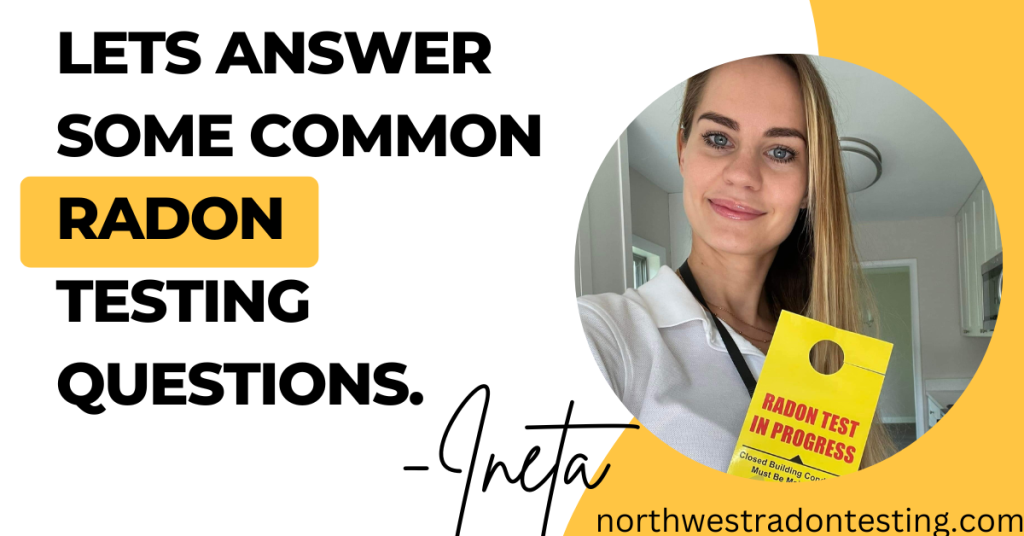PLEASE SCROLL TO THE BOTTOM TO SEE COMPETITORS PRICES UPDATES FEBRUARY 2023 AFTER READING RADON TESTING FAQ

1. What is radon? Radon is a naturally occurring, odorless and tasteless gas that is produced from the decay of uranium in soil, rock, and water. It can seep into homes and buildings through cracks and other openings in the foundation, creating a potentially hazardous indoor air quality issue.
2. Why is radon testing important? Radon is a known carcinogen and is the second leading cause of lung cancer in the United States. Testing your home or building is the only way to determine if elevated levels of radon are present and if remediation is necessary.
3. What is the recommended radon level? The EPA recommends that homes and buildings with radon levels at or above 4.0 picocuries per liter (pCi/L) should be remediated to reduce the risk of lung cancer.
4. How is radon tested? Radon testing is conducted using specialized radon testing devices that measure the levels of radon in the air. These devices can be placed in the home or building for a certain period of time to obtain an accurate reading.
5. How long does a radon test take? A radon test typically takes between 48 and 96 hours to obtain a reliable reading.
6. Can I test for radon myself? Yes, you can purchase a do-it-yourself radon testing kit from a hardware store or online retailer. However, it is recommended that you have a professional radon testing company perform the test to ensure accurate results and proper testing protocol.
7. What if my test results are elevated? If your test results are elevated, it is recommended that you take steps to remediate the radon problem. This can involve sealing cracks in the foundation, installing a radon mitigation system, or taking other remediation measures.
8. How often should I test for radon? The EPA recommends testing your home or building for radon every two years. Additionally, it is a good idea to test after major renovations or after moving into a new home.
It is always better to use a company that specializes in radon testing instead of a company that only does a little radon work for several reasons:
- Expertise: A company that specializes in radon testing has the knowledge, experience, and equipment necessary to accurately test for radon and provide solutions to any elevated levels found.
- Accurate Results: Specialized testing companies have the proper training and equipment to ensure that the test results are accurate and in compliance with EPA guidelines.
- Professionalism: A company that specializes in radon testing takes their work seriously and follows proper protocol to ensure that the testing is conducted properly and that the results are reliable.
- Customer Service: Specialized radon testing companies typically offer excellent customer service, including the ability to answer questions and provide support throughout the testing process.
- Peace of Mind: Working with a specialized radon testing company can give you peace of mind knowing that the testing will be done correctly and that you will receive accurate results.
In conclusion, it is important to use a company that specializes in radon testing to ensure that the test results are accurate and reliable, and that you receive the best possible customer service and support.
OUR COMPETITORS RADON TESTING PRICES UPDATED FEBRUARY 2023
NorthwestRadonTesting: 1 monitor = $209 2 Monitors: $249
BoomTown Radon: 1 monitor = $209
Elliot & Associates/radonillinois.com = 1 Monitor $225 $50 Extra per additional monitor.
Northwest Radon Testing differentiates itself from others by emphasizing its focus on providing detailed, responsive, and convenient services to its customers, while also ensuring a positive experience through its commitment to being good people. These values set the company apart by highlighting its commitment to quality and customer satisfaction, making it a top choice for those in need of radon testing services.
– Ineta Jokubaitis

